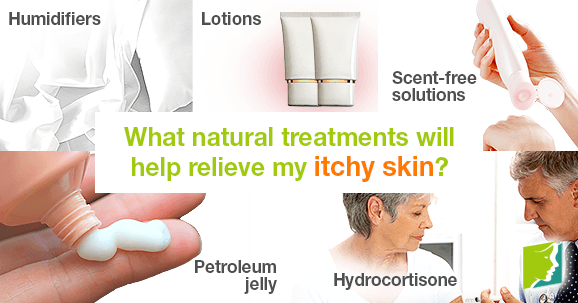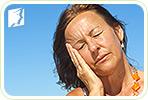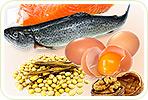During menopause, a reduction in the amount of estrogen your body makes can manifest itself in different symptoms, including dry, cracked, or itchy skin. This occurs because estrogen is responsible for keeping skin moisturized and flexible. Itchy skin is often coupled with a thinning of the epidermis.
While all of this occurs inside your body, there are external ways to fight it. But, not every lotion moisturizes the same. Keep reading to find out about the best types of skin moisturizers.
What Natural Treatments Will Help Relieve Itchy Skin?
Itchy skin is a common symptom of both aging and menopause, and often, a good daily moisturizer can help.
Humidifiers
No, technically this isn't a skin cream, but it is a moisturizer. It's especially useful during the winter months when the air is unforgiving, cold, and dry and can cause skin to dry out and become itchy. Using a humidifier at home or at work will help eliminate the harsh conditions that your skin has to face. Just make sure to do the proper upkeep with your humidifier because an old or unclean humidifier can trigger allergies or asthma.
The hype behind hypoallergenic
Many cosmetic and body care companies market products that are labeled as "hypoallergenic." However, these products do not have to follow any specific guidelines and usually do not contain ingredients that are significantly different from similar products without the "hypoallergenic" label.
Scent-free solutions
Many people with itchy and dry skin tend to apply lotion multiple times a day. If you fall into this category, it may be a good idea to invest in unscented lotion. This is because lotion with a strong scent can trigger allergies or aggravate the allergies of co-workers, family members, or other people who are around you.
Petroleum jelly
Many people find that petroleum jelly is an excellent and inexpensive moisturizer. Petroleum jelly can be especially helpful in the winter months, when skin tends to dry out easier. Many people also use petroleum jelly as a lip balm. However, be careful with petroleum jelly, as it can be messy.
Hydrocortisone
If you've noticed especially irritated patches of skin, you may want to ask your doctor about hydrocortisone cream. Available both by prescription and over the counter, this cream can help relieve itchy and irritated skin.
More Information
It's a good idea to apply body lotion after bathing, and then to reapply throughout the day as needed. Remember to pay special attention to the elbows, knees, and any other part of your body that tends to dry out easily and itch. Buffing calluses and dead skin off of the bottom of feet can also go a long way to reduce itchy feet.
Just because you're going through menopause doesn't mean you have to live with itchy skin. Hopefully the above tips will help you to soothe and replenish your skin. Click on the following link to read more about skin problems during menopause.
Sources
- American Family Physician. (2003). What Can I Do for Dry, Itchy Skin? Retrieved October 15, 2015, from http://www.aafp.org/afp/2003/0915/p1145.html
- Food and Drug Administration. (2014). "Hypoallergenic" Cosmetics. Retrieved October 15, 2015, from http://www.fda.gov/Cosmetics/Labeling/Claims/ucm2005203.htm
- Mayo Clinic Staff. (2013). Humidifiers: Air moisture eases skin, breathing symptoms. Retrieved October 15, 2015, from http://www.mayoclinic.org/diseases-conditions/common-cold/in-depth/humidifiers/art-20048021?pg=1



